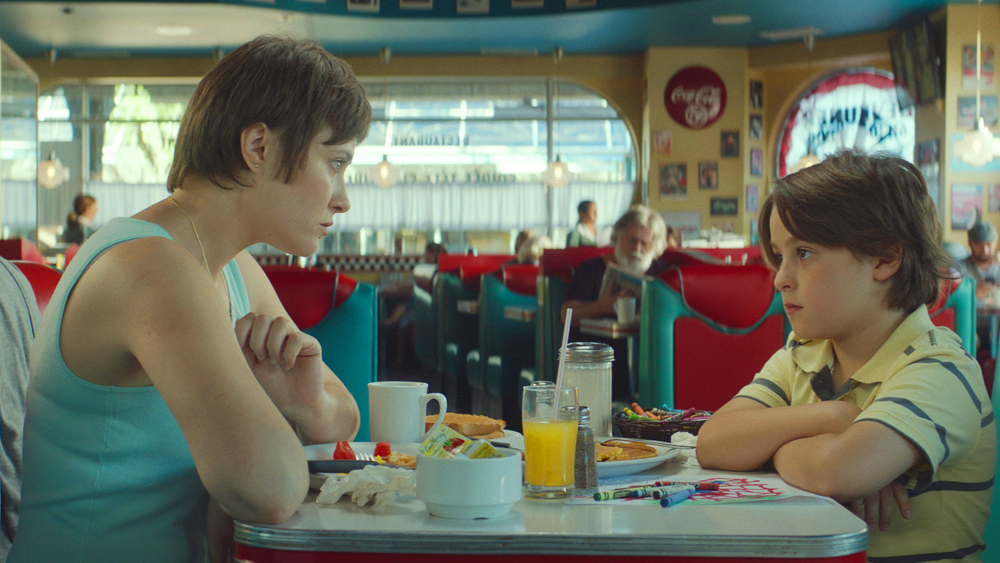Sarajevo’s CineLink Industry Days Embrace Co-Productions, Documentaries
By Ed Meza
LOS ANGELES (Variety.com) – The Sarajevo Film Festival’s CineLink Industry Days came to a close Thursday after six days of events, workshops, panel discussions and market presentations.
The CineLink Industry Days is a major hub for Southeast Europe’s film industry, attracting nearly 1,000 professionals to its various events, among them the Co-Production Market, Work-in-Progress, Docu Rough Cut Boutique and the True Stories Market.
One key objective of the section has been to improve international circulation of films from the region, according to Jovan Marjanovic, head of CineLink Industry Days. “We try to bring all those key players who are able to take films to audiences to Sarajevo and introduce them to the best upcoming films and series from the region,” Marjanovic said.
CineLink has already seen plenty of success, with a number of projects previously developed and presented in its various sections performing especially well this year. Tolga Karacelik’s “Butterflies” won the Best International Motion Picture Award at Sundance, while three others premiered at the Berlin Film Festival: Milko Lazarov’s “Ága,” which also nabbed this year’s Heart of Sarajevo; “Lemonade,” which garnered Sarajevo’s best director prize for Ioana Uricaru; and “Touch Me Not,” which won Berlin’s top prize, the Golden Bear.
In addition, Netflix recently picked up another former CineLink project, Cannes award-winner Dalibor Matanić’s hit Croatian series “The Paper,” about a construction tycoon with political ambitions who takes over a struggling newspaper in an effort to gain editorial influence for power and personal gain.
This year the Co-Production Market presented 17 feature film projects currently in the development and financing stages. The market offers awards worth €36,000 ($41,008). Winners included “A Cup of Coffee and New Shoes On,” from Gentian Koçi, who was in competition in Sarajevo last year with “Daybreak,” which went on to become Albania’s official candidate for the best foreign-language film Oscar. Also receiving prizes were “May Labour Day,” by Pjer Žalica, who won Sarajevo’s first feature prize in 2003 for “Fuse”; Juraj Lerotić’s “Safe Place”; and Igor Bezinović’s “Fiume O Morte.”
Meanwhile, CineLink teamed up with the Ji.hlava International Documentary Film Festival’s Docu Talents from the East platform to present 10 new documentary projects from Central and Eastern Europe in various stages of production and post-production with the aim of enhancing their sales and distribution prospects.
CineLink coordinator Maša Marković said there was a strong need among documentary filmmakers from Southeast Europe for greater support. In addition to CineLink’s established Docu Rough Cut Boutique program, which this year awarded prizes to five projects, organizers partnered with Docu Talents from the East to further strengthen the section’s documentary focus and help create strategic placement possibilities for documentary-makers in the region, Marković added.
As part of the Docu Talents event, a jury presented a $5,000 prize to two of the most promising projects, “My Granny From Mars,” Alexandar Mihalkovich’s Ukrainian-Belarusian documentary about an 80-year-old Ukrainian woman cut off from her family in Crimea; and “Birthday,” an intimate look at a lonely woman on her birthday, by Hilal Baydarov from Azerbaijan.
CineLink’s True Stories Market, along with the festival’s Dealing with the Past section, is dedicated to the improvement of dialogue among the countries of the former Yugoslavia. The market presents five actual cases selected from the archives of key organizations that work to document the Yugoslav Wars. Among the stories was that of Nermin Karagić, who, in 1992 at the age of 17 in Prijedor, Bosnia-Herzegovina, twice survived attempted executions by Bosnian-Serb soldiers.
Also marking this year’s industry event was the signing of a new film co-production agreement between Bosnia-Herzegovina and France. “French public support for cinema has served as an example for many countries,” said Adil Osmanović, Bosnia-Herzegovina’s minister of civil affairs. “Like France, Bosnia and Herzegovina share a belief in the importance of cinema for the cultural and economic growth of the country.”
The new agreement replaces the existing treaty signed by France and Yugoslavia in 1975.
Osmanović said the new pact aimed to expand possibilities for film professionals from both countries and to provide Bosnian and French films better access to each others’ markets.
The new agreement also lowers the necessary participation share of a partner country from 30%, as previously required, to 10%. In addition, films co-produced by Bosnia-Herzegovina and France will be treated as national films in both countries, giving them access to additional aid and funding possibilities reserved for national films.
(Pictured: “”)

